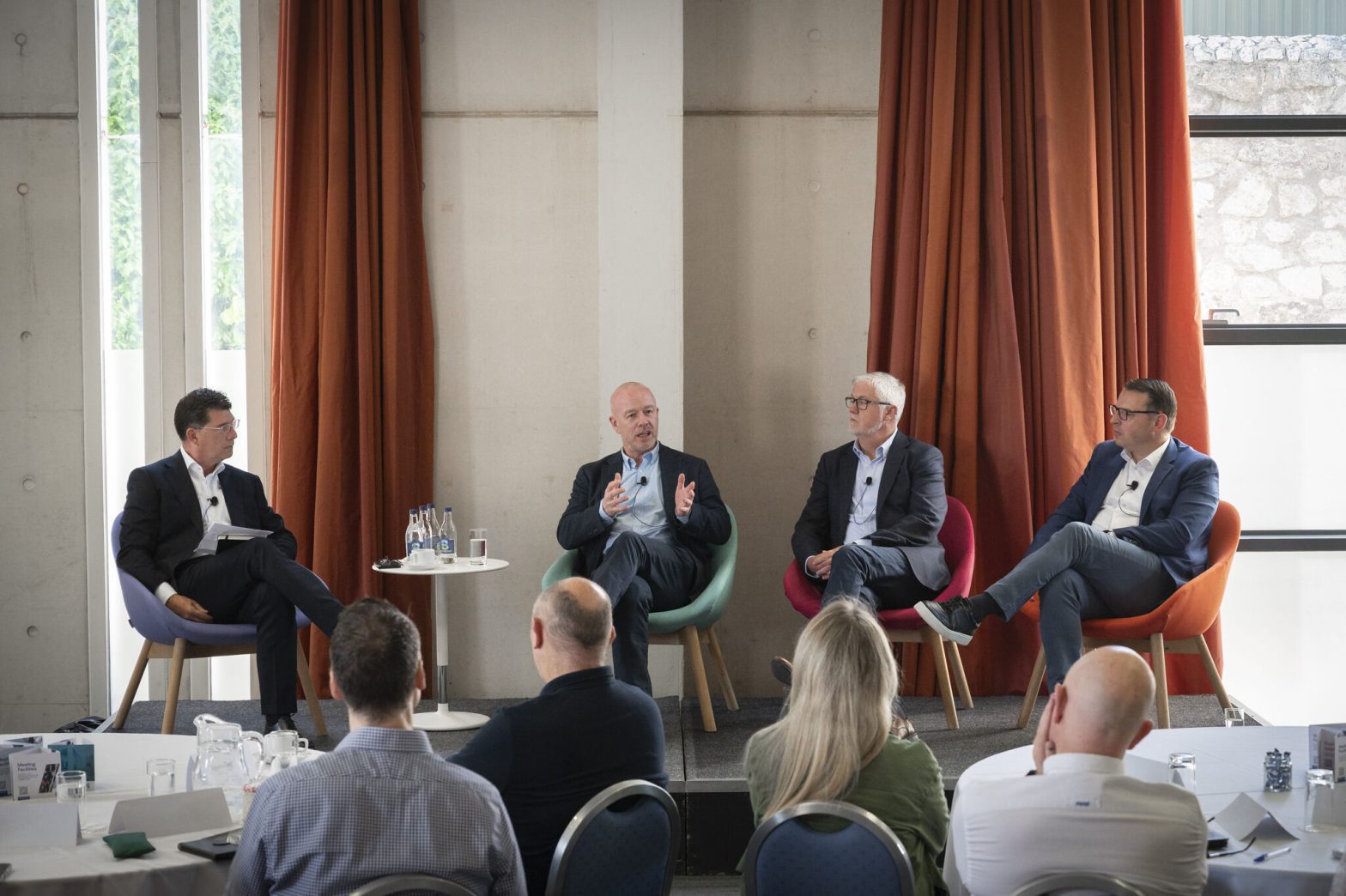Influencing HQ – Leading with Intent in Irish Multinationals
By David Cornick | 14th June 2021
Ireland has attracted multinational companies for years, and local leadership teams need to continually evolve to retain and increase their influence on the international stage.
There can be little question that one of the great success stories of the Irish economy is our continuing ability to attract foreign direct investment to these shores. However, IMI research suggests that in order to continue this success story local leadership teams will need to enhance their ability to influence strategic decisions on the international stage.
And, when we look at the numbers, there is a lot to influence.
Viewing Foreign Direct Investment (FDI) companies as a percentage of GDP, Ireland is easily considered one of the most globalised countries in the world. Inward economic flows from FDI companies accounted for 66% of Ireland’s GDP in 2015, compared to 1% from our UK neighbours.
The number of people employed by FDI companies reached an all-time high of 245,096 in 2019, while employment growth in this sector was 6% compared to 2.4% nationally in the same year.
These statistics show the outsized influence FDI companies have on the Irish economy, but do not show the influence the leadership teams in these Irish hubs have on their respective corporate headquarters.
Critical Challenges for Irish Leaders of FDI companies
.
Through focus groups, workshops, interviews and surveys with 30 senior leaders representing the Irish-based subsidiaries of foreign multinationals, IMI, in association with IDA Ireland, identified four critical challenges facing leadership teams in Irish subsidiaries of multinationals. From this, the Leading with Strategic Intent programme was born.
The first of these major strategic leadership challenges is building and sustaining a sphere of influence. Better leveraging their own ecosystem, optimising the strengths associated with Irish leaders, and creating a compelling strategic narrative to ‘sell’ to their international counterparts are key to increasing that influence.
Frank Ryan, IDA Chairman, said recently that organisations must be crystal-clear in terms of their strategic direction, pointing to a spirit of innovation as the ‘secret sauce’ to reinforcing their strategic narrative.
With disruption hitting almost every business model, developing a transformative mindset was the second challenge identified. It can be easy to slip into the ‘cog in a wheel’ approach, even as a senior leader of a subsidiary, but being an active change agent is vital when delivering on the transformative change that will undoubtedly be required.
This mindset of transformative change has taken on a new meaning given the wide-ranging consequences of the pandemic, with FDI inflows to most countries tanking in 2020, according to the OECD, falling by 70pc in the EU.
A more empowered local leadership team will be able to capitalise on opportunities to innovate while excelling in their charter, and this in turn will be crucial in differentiating the Irish subsidiary from sister sites around the world, protecting it from global economic forces and strengthening it for the post-pandemic era.
“In my time working with MNC subsidiaries in Ireland, those that drive innovative strategies, operational excellence and who particularly nurture talent and cultural diversity benefit through being competitive, resilient and capable to deliver consistent added value to their parent,” says Michael Lohan, Head of Life Sciences, Transformation & Talent at IDA Ireland.
“At its core, this [Leading with Strategic Intent] programme provides a proven framework which will enable the leadership teams within Irish subsidiaries to capitalise on their full potential and enhance their value to the corporate entity.”
The third challenge is directly associated with globalisation – the ability to navigate cultural complexities. Working in matrixed organisations, across different geographies, with culturally diverse colleagues and stakeholders, leaders must develop the abilities to not only manage these cultural differences, but leverage them.
The final challenge identified is attracting and retaining future leaders. Future-proofing the organisation through strategic talent management and succession planning is fundamental for success down the road, both at local and international level.
Frank Ryan said it best in a speech to the companies participating on this year’s programme: While we are never going back to the way things used to be, the people that make up this sector are ‘strong, resilient and adaptable’ and capable of redefining the present and forging a future of possibilities.
Leading with Strategic Intent
Leaders in Irish subsidiaries of FDI companies have played an outsized role in global economics over the last two or three decades, and on the Irish economy itself. The vagaries of international economics, however, shows that foreign investment can shift from one country to another, and to remain on top requires adding value beyond tax rates.
By examining their roles as subsidiary players in the overall multinational game plan, building a unique leadership vision and value proposition within that game plan, and developing their ability to manage and strategically influence stakeholders in a matrixed, multi-cultural context, leaders in Irish subsidiaries can continue to be at the heart of their HQ’s thinking.
What the Programme Offers
Leading with Strategic Intent is designed specifically to create the space and conditions senior leadership teams need to turn the strategic challenges outlined above into new opportunities.
A powerful – and consistently rated ‘invaluable’ – component of the programme is the benefit of a dedicated and highly experienced business mentor for the duration of the journey. The mentor’s role is to help the leaders of the company they are matched with shape their strategic thinking and value propositions for further investment in the Irish operation.
Separately, a masterclass in the area of international business development and four workshops led by experts in strategy development create a structured process for companies that culminates in the development of a Strategic Blueprint for their site. This in turn is presented to a dedicated panel for review at the end of the programme.
Since its inception in 2019, Leading with Strategic Intent has run twice and has enabled the senior leadership teams of 25 companies to build on their successes to date and lay the groundwork for future inward investment and sustainable growth.
To learn more about the Leading with Strategic Intent programme and how you could benefit, click here.
To register your interest please contact Cyrilla Costello at IMI via cyrilla.costello@imi.ie.





